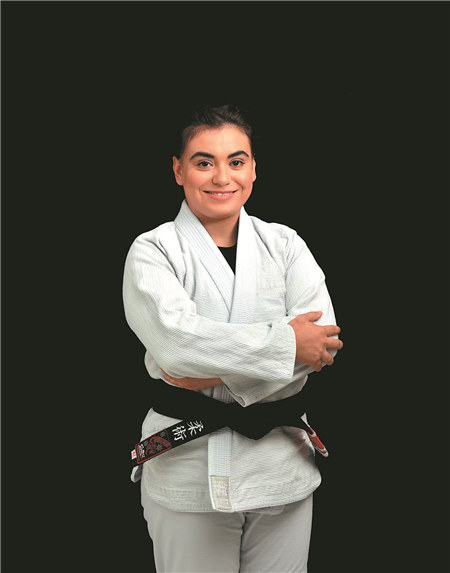

Levy used to teach tai chi for years at a school in Israel, and this is the first time he is imparting a bilingual tai chi lesson to trainees in China. He notes that unlike overseas trainees, the Chinese are familiar with many professional words and theories in this field, making the lesson easier, more efficient and smooth.
"Hopefully, we can be friends, and I can learn from them as well, about their ideas, about different cultures and more. I hope each trainee in the class can have the opportunity to express themselves with tai chi," says Levy.
Zheng Pengcheng, a 24-year-old account manager in the class, is a big fan of tai chi. He signed up for a tai chi calligraphy lesson in the spring semester of Shanghai night courses.
"Tai chi can help us build the body and stay fit. The teachers are professional; and the lesson is of great value. We exercise, practice English and learn different movements and promote cultural understandings. It is very interesting," says Zheng.
As another big fan of traditional Chinese culture, Levy enjoys his time with the trainees and his life in Shanghai too.
"For foreigners in China, Shanghai is a convenient city. As an international metropolis, Shanghai can offer you both traditional Chinese and Western cultures. This city is vibrant, dynamic and smooth. Things just flow here, and it is always changing — in a smooth way."